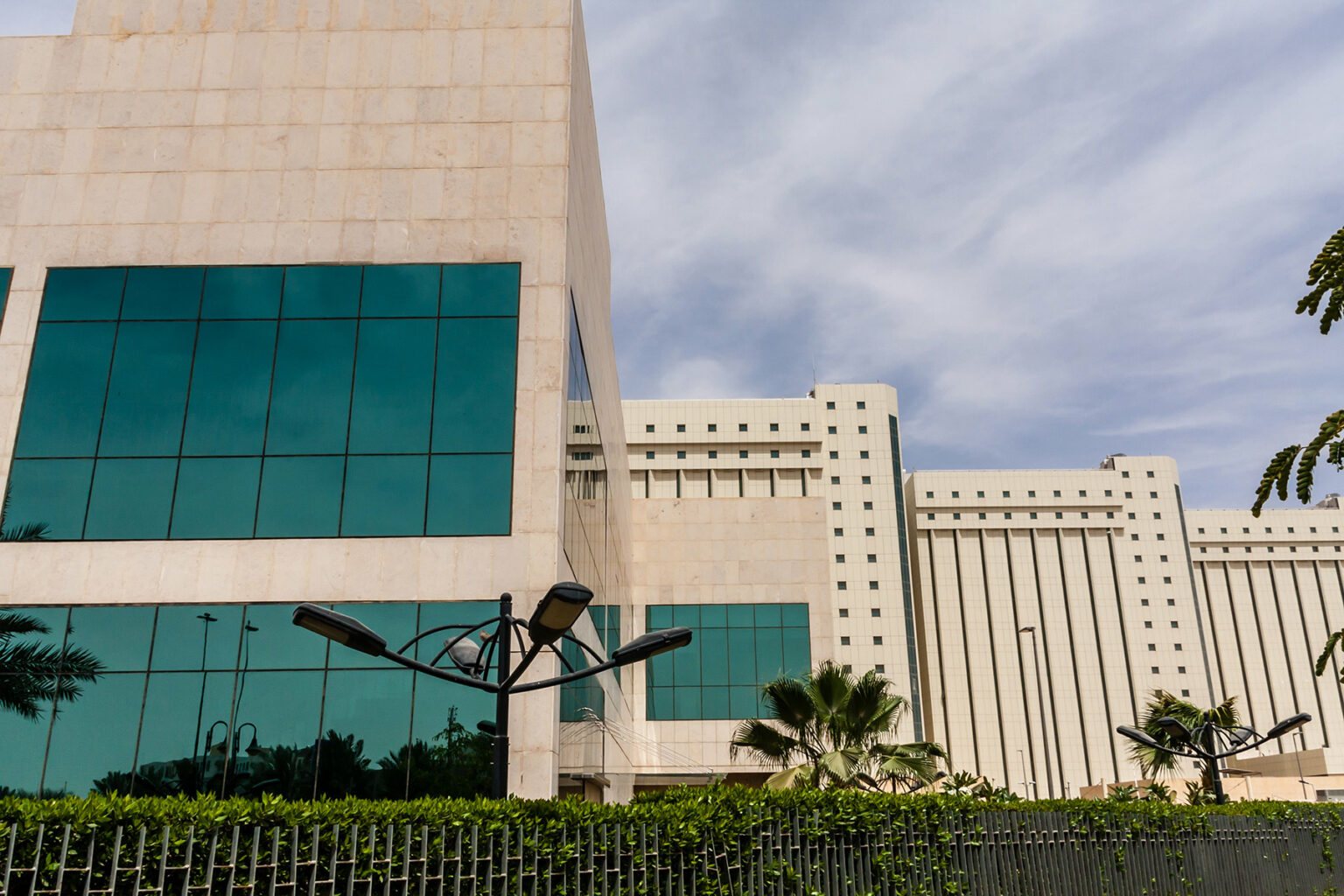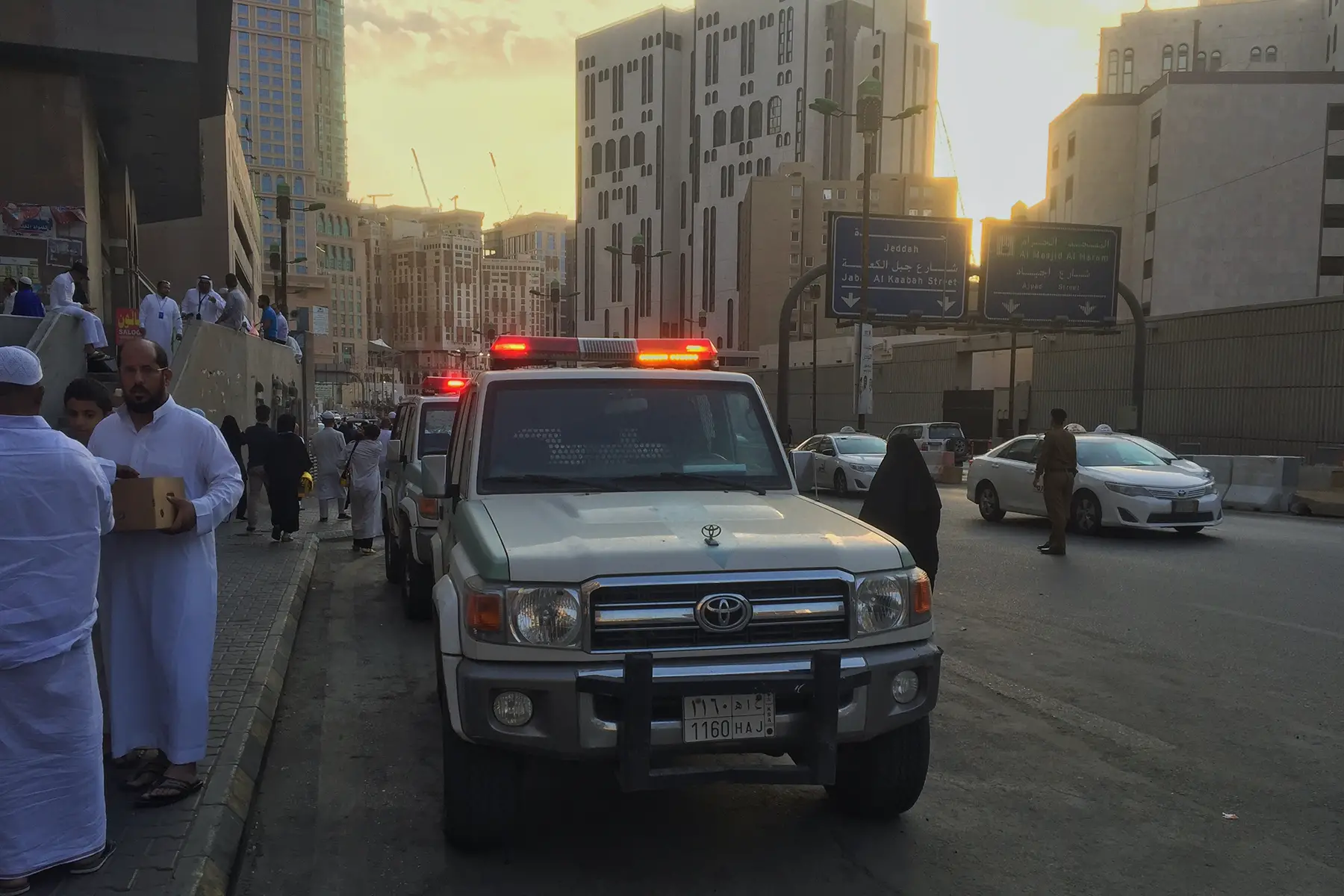Hospitals in Saudi Arabia are among the Arab world’s best. International residents in the Kingdom with private health insurance can expect high standards of treatment, care, and comfort.
Many healthcare centers in the country are modern, well-equipped, and staffed by highly qualified medical professionals from around the world. Hospitals in Saudi Arabia can handle pretty much any emergency or ailment. Keep reading to explore what hospitals are like in the country, what the associated costs are, and more in the following sections:
- Hospitals in Saudi Arabia
- How to access hospital treatment in Saudi Arabia
- Emergency treatment in Saudi Arabia
- Hospital stays in Saudi Arabia: what to expect
- Hospital costs in Saudi Arabia
- Being discharged from hospitals in Saudi Arabia
- Visiting someone in a hospital in Saudi Arabia
- Best hospitals in Saudi Arabia
- Useful resources
APRIL International
Looking for expat-friendly health insurance in Saudi Arabia? APRIL International has a long history of providing health coverage tailored to the unique needs of the expat lifestyle, ensuring peace of mind for you and your family. Whether you’re relocating to Saudi Arabia or simply staying short-term, APRIL International has the right policy for you.
Hospitals in Saudi Arabia
The hospital network in Saudi Arabia is thriving. Today, the Kingdom boasts a national health service comprising 287 public hospitals and 167 private hospitals. Big employers like oil company Aramco even have their own staff hospitals catering to both Saudis and expats. In total, there are more than 500 hospitals nationwide, serving 35 million people.
As a foreign resident, your experience in a Saudi hospital will probably be in a private facility. Private healthcare is big business and highly competitive. The large expat communities in Riyadh, Jeddah, and Dammam/Al Khobar are incredibly well-served, with facilities offering almost every general and specialist treatment under the Saudi sun. With healthy competition, standards are normally high, and the scope of services provided is broad.
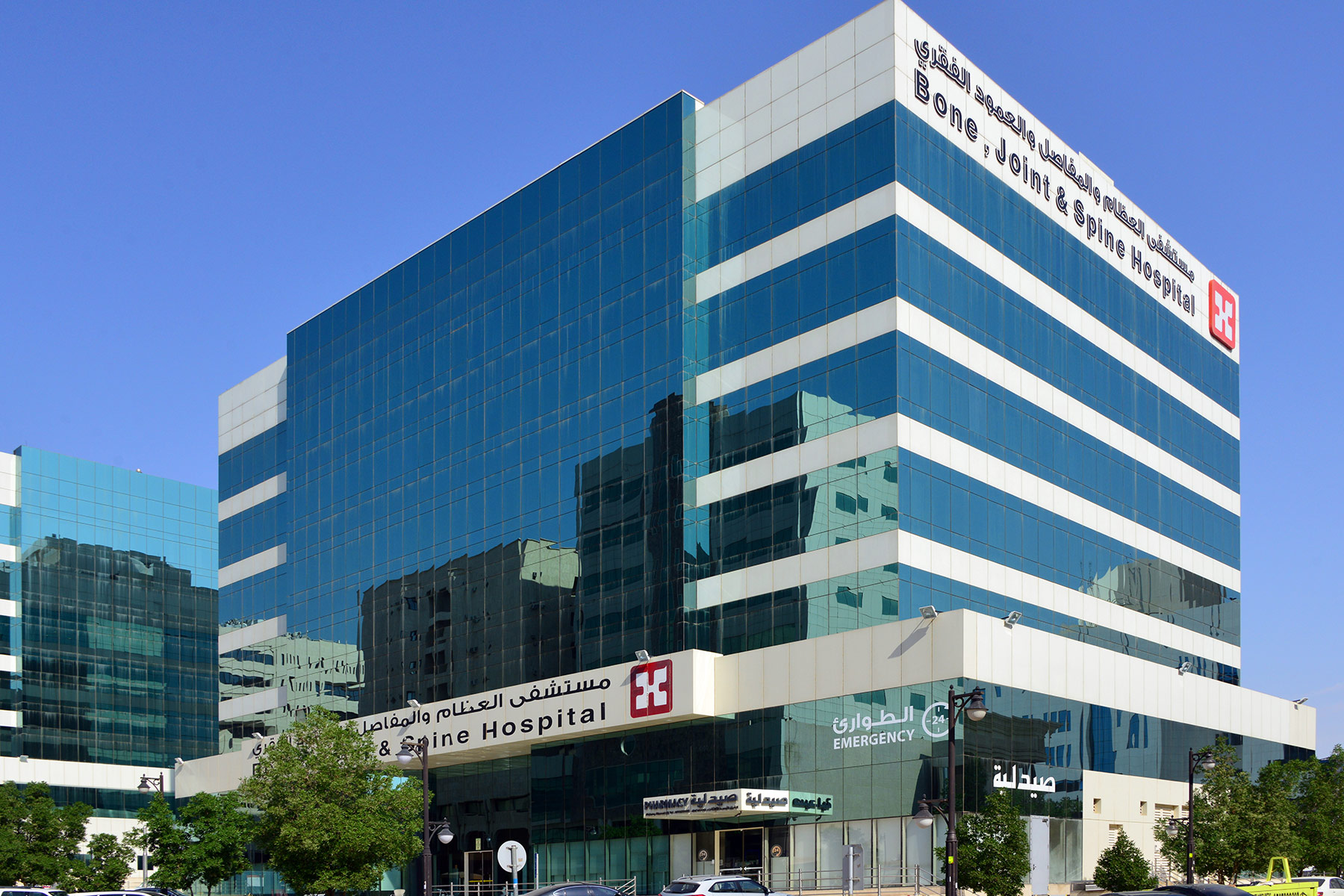
All hospitals in Saudi Arabia are regulated by the Ministry of Health. The government upholds care standards, codes of ethics among healthcare professionals, and training. Saudi hospitals rank well against their international peers across the board. In total, there are 2.2 beds per 1,000 people across the Saudi hospital system, roughly on par with the global average. There are 19,427 private hospital beds in the country.
Public and private Saudi hospitals
There are public hospitals all over this large country. The general rule of thumb is: the more remote, the more basic the facilities.
Service standards, even in big city hospitals, are rarely as good as those in private hospitals – registration formalities are cumbersome and waiting times are longer (though efforts are being made to improve them). Public hospitals may not be your first port of call, but they are handy if you’re ever off the beaten track.
Treatment in public hospitals is free for Saudi citizens but not for internationals.
Expect staff in all hospitals in Saudi Arabia to speak English and Arabic. Healthcare centers tend to be multilingual and multicultural environments, so you’ll likely encounter other commonly spoken languages, such as Hindi, Indonesian, and Urdu.
Both public and private hospitals in Saudi Arabia run the full range of primary, secondary, and tertiary treatment and services. These include, but are not limited to:
- Surgery
- Oncology (Cancer)
- Diabetes (Saudi Arabia has a very high prevalence of diabetes)
- Cardiology
- Maternity
- Pediatrics
- Physiotherapy
- Psychiatry
- Renal dialysis
- Eyecare
- Accident and emergency
How to access hospital treatment in Saudi Arabia
Internationals can use any public or private hospital in Saudi Arabia. Unlike Saudi citizens, you’ll have to pay from your own pocket to use a government hospital, so you’ll likely only access one in a real emergency.
Meanwhile, private hospitals are simpler to navigate. At the reception, hand your iqama (residence permit which everyone carries), your health insurance card (all expats are required to have some form of health insurance), and your credit or debit card (to cover any additional expenses not included in the policy).
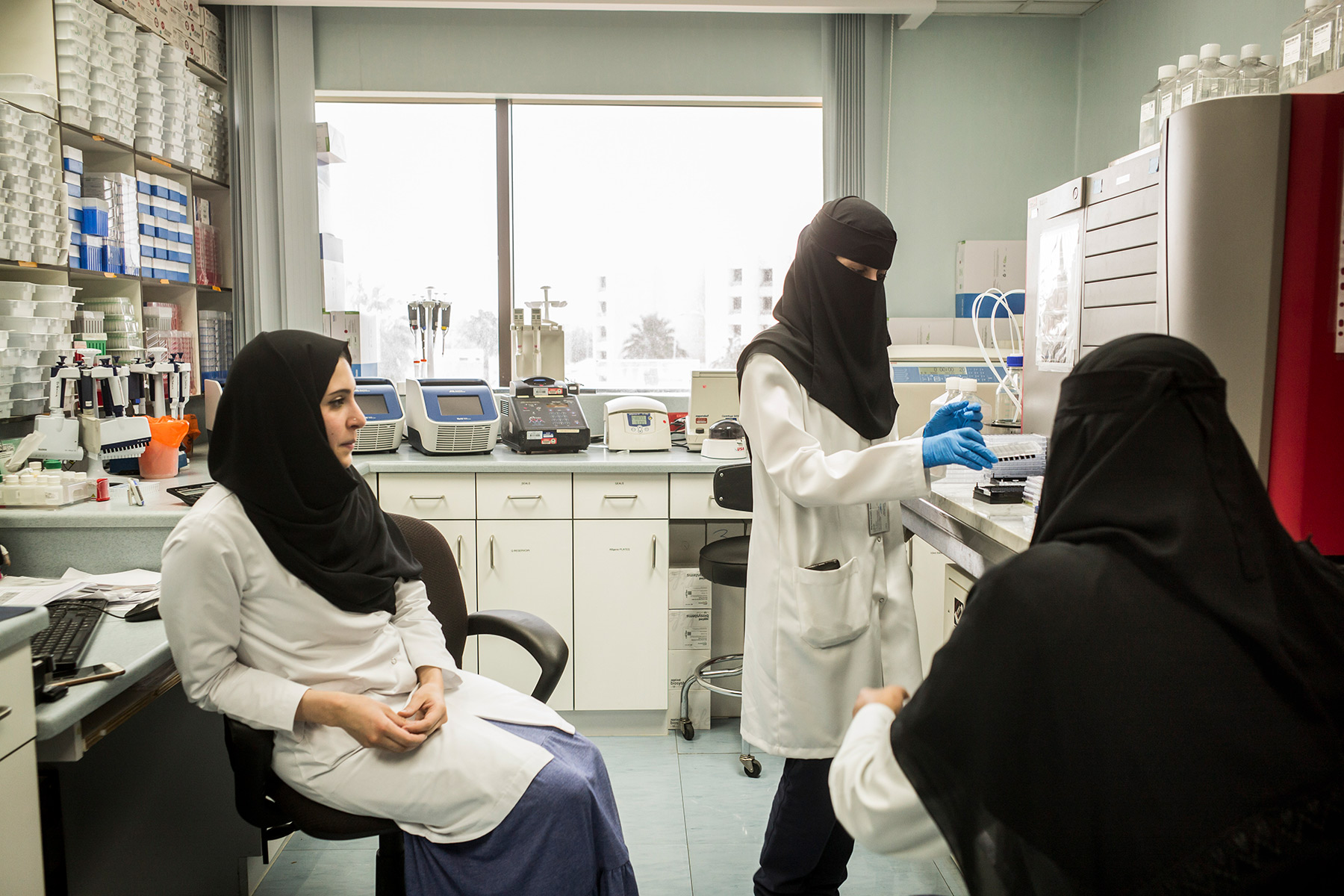
In some cases, you can turn up without a prior appointment and will be attended to quite quickly, though it’s worth avoiding the ‘rush’ between 18:00 and 21:00. If you want to see a specialist, you won’t need a GP referral, but you should book an appointment. Most hospitals allow you to do this online.
Check your insurance policy to see what is covered – you may have to pay for some of your treatment.
Emergency treatment in Saudi Arabia
Emergency assistance is available on 999 or 991 from anywhere in Saudi Arabia. Dial 997 for an ambulance. Ambulance response times vary – sometimes, it might be quicker to get a taxi to the nearest hospital.
Pretty much every hospital in Saudi Arabia has an accident and emergency unit. If you find yourself in one, the median length of stay is 61 minutes.
Hospital stays in Saudi Arabia: what to expect
Although staying in a hospital is no vacation, private medical facilities in Saudi Arabia are usually pleasant and comfortable.
You’ll probably have a private en-suite room with the sort of mod-cons you’d expect in a moderately priced hotel: satellite TV, free WiFi, a mini-fridge (which might even be stocked), and possibly even room service. Your room may even feature a small sofa, a vase for flowers, and paintings on the wall for a touch of calm, rest, and recuperation.
Some really swanky private hospitals (for example, the Saudi German hospital chain) offer luxury VIP suites, gourmet food, and private entry/exit points. However, unless your policy covers it, you’ll probably have to dig deep for this.
On the other hand, this is a socially conservative country. As a woman, your experience as a patient or visitor in one of the Kingdom’s hospitals might differ from what you’re used to at home. Read about Women’s healthcare in Saudi Arabia for more details on gender-specific care.
Hospital costs in Saudi Arabia
Health insurance for hospital costs in Saudi Arabia
Treatment in a Saudi hospital does not come cheap (a room for the night might cost at least US$200/night, and a surgical procedure can run into the thousands). Thankfully though, you’re extremely unlikely to pay the entire sum.
Most health insurance policies taken out by your employer will cover emergency hospitalization, surgery, doctors’ consultations, X-rays, MRIs, and medication. However, as an inpatient, expect to pay from your own pocket for additional luxuries such as room service.
For visits to a GP or specialist, you might have to pay 50% of the consultation charge plus some of the cost of any medicines you are prescribed.
Again, depending on your policy, you might have to pay the entire bill when you’re discharged. You then submit a claim (directly to the company or via your employer) later.
APRIL International provides comprehensive health insurance, including hospitalization for expats in Saudi Arabia.
Being discharged from hospitals in Saudi Arabia
Being discharged from a hospital in Saudi Arabia should present no challenges (unless you’ve received a large unexpected bill!).
The doctor in charge of your care will sign off on your papers. Then, you’ll go to the front desk and cashier to settle any outstanding charges. After that, you’ll collect any prescribed medicines from the pharmacy (every hospital has one).
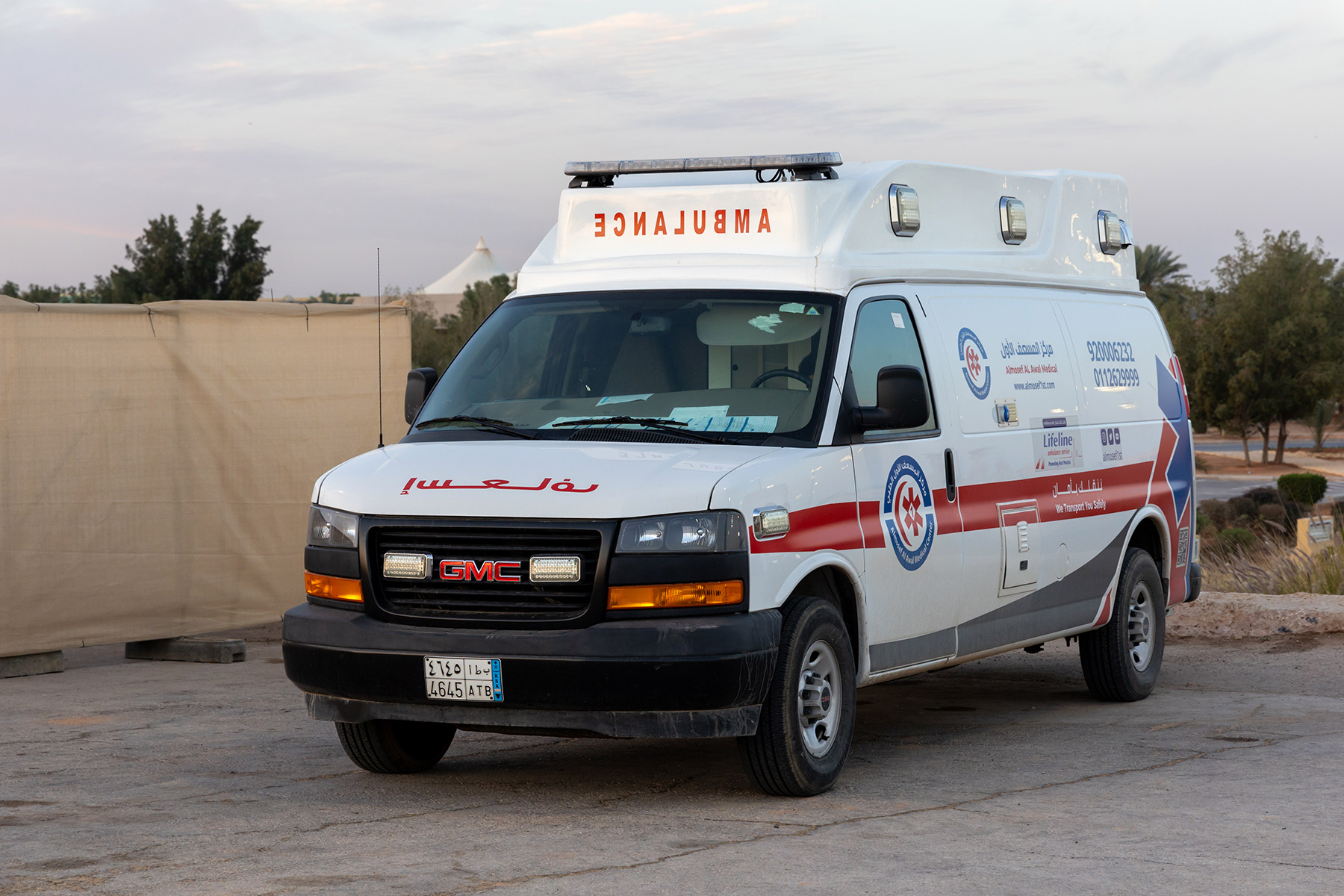
Your outpatient care plan might include a home visit from a medical professional or follow-up visits to the hospital. They will likely schedule your appointment before you leave the hospital. Expect a call or SMS reminding you of the appointment a day or two in advance.
It’s not a good idea to discharge yourself early. As well as being dangerous to your health, it could impact your finances. Walking out of a hospital without being formally discharged can invalidate your insurance and leave you with a hefty bill.
Visiting someone in a hospital in Saudi Arabia
When someone gets sick in Saudi Arabia, extended family and friends come bearing gifts and goodwill.
Some newcomers might experience a culture shock when visiting a hospital in Saudi Arabia. Public hospitals are big and busy and often have the vibe of a central train station, whatever time of day. Both types of medical facilities have cafés, gift shops, florists, and even fast food joints.
Private hospitals are generally calmer. Furthermore, the patient will be in a private room away from the crowds.
Visiting hours exist in theory (and some hospitals even enforce them!), but pitch up at the hospital during daylight hours and you should be permitted a visit.
Best hospitals in Saudi Arabia
Newsweek and Statista rated the following hospitals as the best in Saudi Arabia in 2024:
- King Faisal Specialist Hospital and Research Centre – Located in Riyadh, this public referral hospital provides tertiary care and specializes in oncology, organ transplants, cardiovascular diseases, neurosciences, and genetic diseases.
- King Saud Medical City – This hospital is based in Riyadh. Its specialties include emergency care, trauma, orthopedics, burns, bariatric surgery, dental care, and critical care.
- Dr. Soliman Fakeeh Hospital – Situated in Jeddah, this private hospital has numerous medical disciplines, such as orthopedics, pediatrics, otorhinolaryngology, dentistry, and surgery.
Below, you’ll find lists of hospitals per city.
Hospitals in Riyadh
- King Faisal Specialist Hospital & Research Centre
- King Abduaziz Medical City
- Rabia Hospital (website in Arabic)
- Al Falah Hospital
- Interhealth Hospital
Jeddah hospitals
- International Medical Center Hospital
- New Al Jedaani Hospital
- King Abdulaziz Medical City
- Saudi German Hospital Jeddah
- Al Ryan International Polyclinic
Hospitals in the Eastern Province
Useful resources
- Central Board for Accreditation of Healthcare Institutions – Details on accredited healthcare and patient safety
- Council for Cooperative Health Insurance – Government body supervising health insurance in Saudi Arabia
- Ministry of Health – general information and news regarding healthcare in Saudi Arabia
